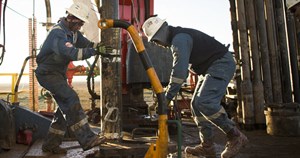Wintershall produces record 171 MMboe
Editor's Note: This is an abbreviated section of Wintershall's outlook. For more information, please visit the company's website.
KASSEL -- Wintershall is looking back in 2019 not only on 125 years of company history, but also on a successful past business year. "In 2018 we set a production record with daily production of up to 500,000 boe. With a crude oil and natural gas production of 171 MMboe in 2018, Wintershall has once again significantly surpassed the record figure – 164 MMboe – from the previous year," explained CEO Mario Mehren at the Annual Press Conference for Wintershall, Germany's largest internationally active crude oil and natural gas producer.
Wintershall also increased its reserves by 12% to 1.9 Bboe – also a record figure. Wintershall replenished 214% of the volumes produced in 2018. The reserves-to-production ratio was increased to around eleven years. This is the ratio of Wintershall's production in 2018 to the end-of-year reserves.
"However, we're not resting on our laurels, but are actively shaping our future in our anniversary year and are writing the next chapter in the company's history: Wintershall DEA will be the largest independent European gas and oil company – a European champion in the best sense of the word," said Wintershall's CEO.
"We're convinced that it is right and important that Germany also has a powerful gas and oil company – in the same way that many of our neighboring countries also have a major player." The European Commission already gave its approval to the merger of Wintershall and DEA at the end of February. The transaction is expected to close in the first half of 2019.
Future-oriented gas and oil production
Despite the continued challenging market environment in 2018, Wintershall increased its income from operations before special items (EBIT) by 155%, from 683 million euros in 2017 to 1,745 million euros. This was primarily due to higher gas and oil prices and higher production volumes in Norway and Russia. EBIT increased by 798 million euros to 1,733 million euros. This is a plus of 85%. BASF's net income after taxes increased by 69 million euros (plus 9% to 829 million euros (2017: 760 million euros).
Sales to third parties increased by 842 million euros over the previous year to 4,094 million euros (2017: 3,252 million euros) due to higher prices and volumes. This is a 26%. The average price for a barrel of Brent crude in 2018 was $71 (2017: $54). Gas prices on the European spot markets rose by around 32% over the previous year.
The merger with DEA sets the course for further growth. The new company is aiming to increase Wintershall DEA's average daily production, which together for the two companies is currently around 590,000 boe, by around 40% to between 750,000 and 800,000 boe within the next four years. This growth is expected to come from both the existing portfolio of the two companies and the new production regions. DEA has recently become active in Mexico, and Wintershall has succeeded in entering a new oil and gas concession in Abu Dhabi.



